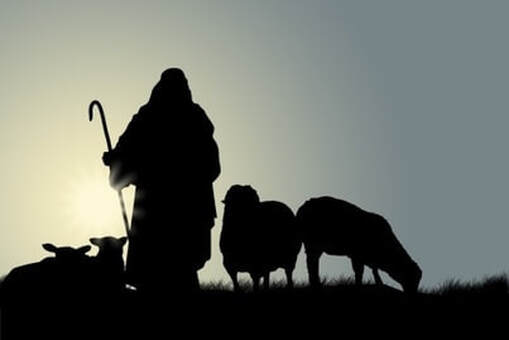It’s hard for modern Christians not to think of Psalm 23 when the word “shepherd” comes to mind. But that beautiful psalm reflects only some of the aspects of shepherding. Leading the sheep to pasture – providing for them – and through the valley of darkness – protecting them – are certainly vital aspects of the job, but as a shepherd himself David knew that there was more to the job than just feeding and protecting the sheep.
We find additional insights into the role of the shepherd in another of David’s psalms: “Save your people and bless your inheritance; be their shepherd and carry them forever” (Psalm 28:9). In the first half of this single verse we see the same aspects of protecting the sheep and providing for them, and in the second half David also mentions guiding the sheep (the Hebrew urom is a verb – to shepherd or guide, not to be a shepherd) and carrying them.
In this short but remarkable verse, David captures perhaps all the major aspects of the shepherd’s role in four verbs: To protect the sheep from death, to supply their needs, to guide them and finally to carry them when they are weak or injured and need the shepherd’s strength in addition to their own.
This picture meshes well with Christ’s role as shepherd, which we see in the prophecy quoted by Matthew: “But you, Bethlehem, in the land of Judah … out of you will come a ruler who will shepherd my people Israel” (Matthew 2:6). Jesus himself elaborated on the same four aspects of that role mentioned by David in Psalm 28. As the prophesied shepherd, Christ did all these things for his people:
Protected them from eternal death: “I am the good shepherd. The good shepherd lays down his life for the sheep” (John 10:11).
Provided their needs: “I am the gate for the sheep … whoever enters through me will be saved. They will come in and go out, and find pasture” (John 10:7-9).
Guided them: “When Jesus… saw a large crowd, he had compassion on them, because they were like sheep without a shepherd. So he began teaching them many things” (Mark 6:34).
Carried them: “Suppose one of you has a hundred sheep and loses one of them. Doesn’t he … go after the lost sheep until he finds it? And when he finds it, he joyfully puts it on his shoulders and goes home” (Luke 15:4-6).
The people of ancient Israel in David’s day, and those of Judea in Christ’s day, knew well that these things were all involved in being a shepherd. That’s why Christ used that analogy often, and why his hearers may have understood more fully than we sometimes do what it means that the Lord is our shepherd. They knew, as we should come to know also, that the flock need never doubt that the Shepherd will always protect, provide for, guide, and carry the sheep. It’s what shepherds do.

 RSS Feed
RSS Feed
